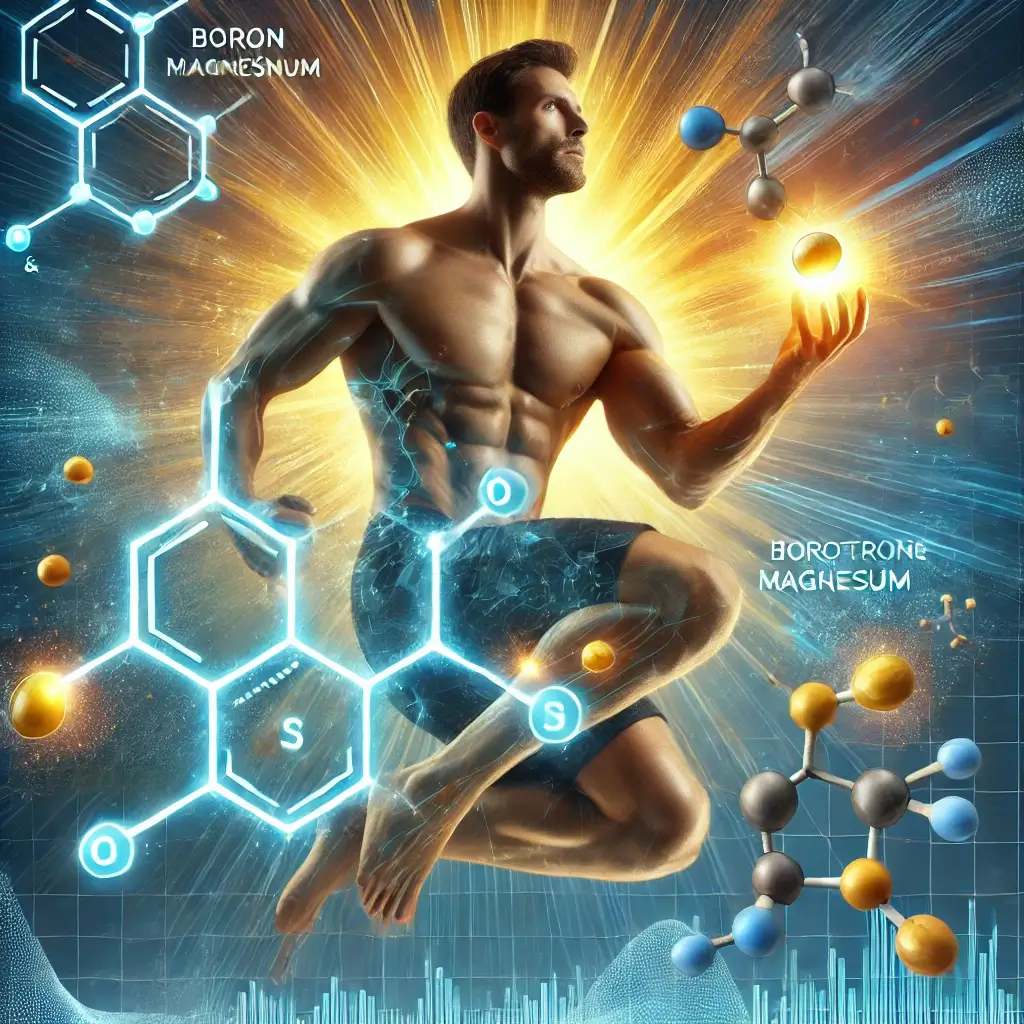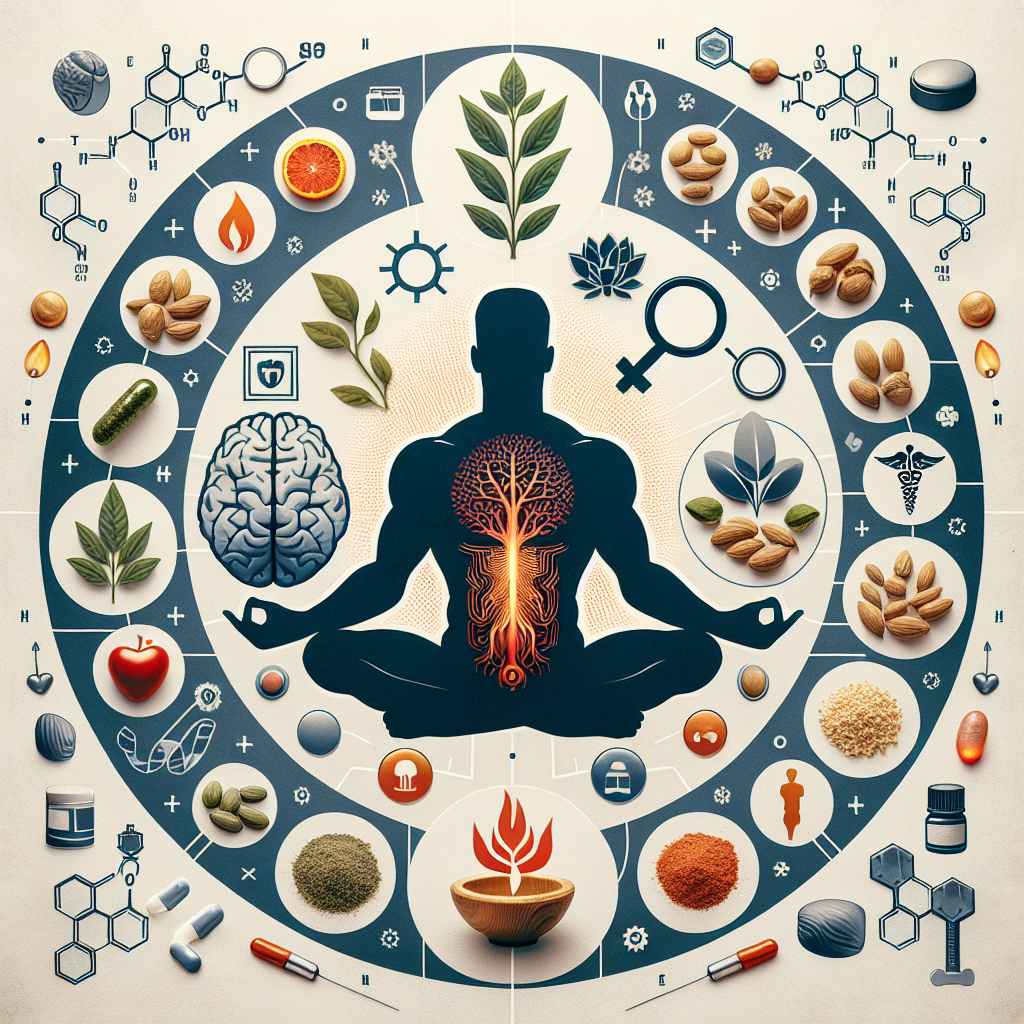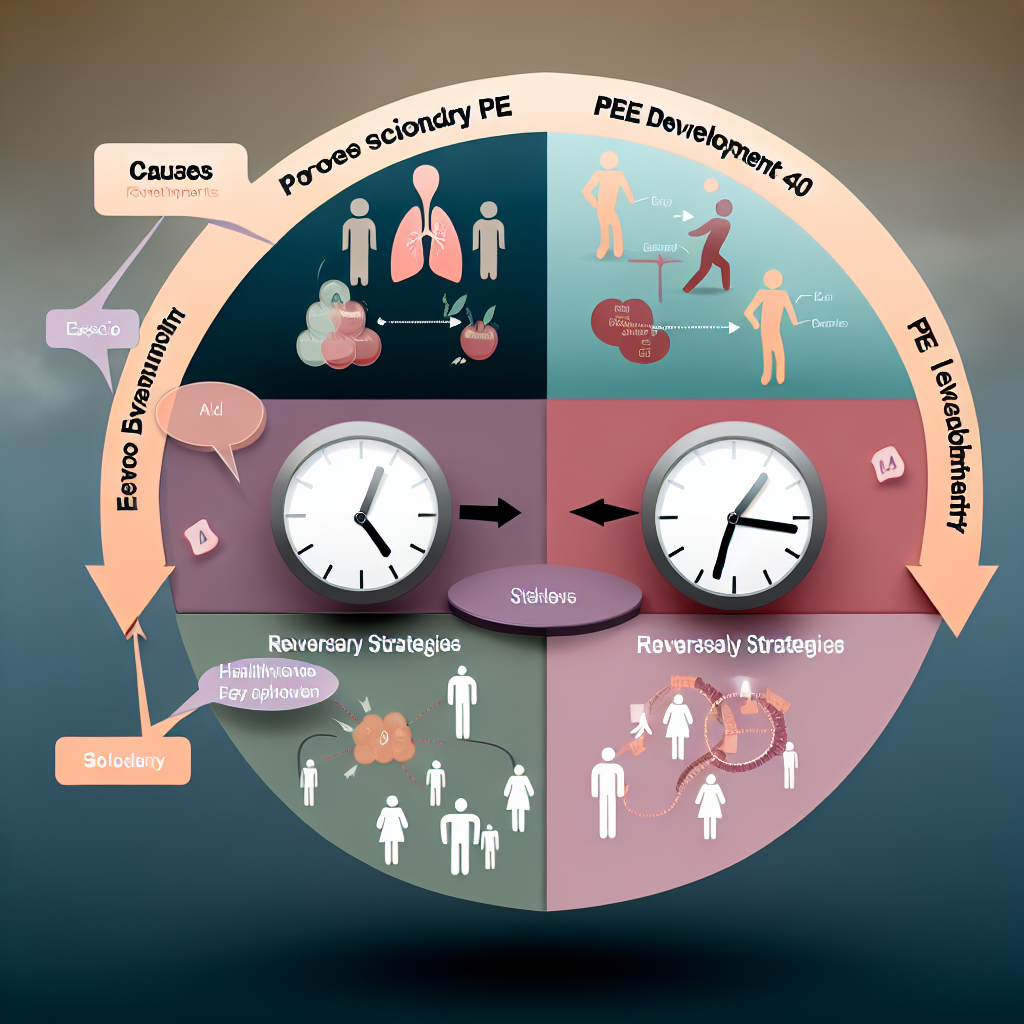The Overlooked Foundation of Male Hormonal Health
In the quest to maintain peak performance and health, men often overlook the role of foundational nutrients in hormonal regulation. Testosterone, the primary male hormone, governs muscle growth, energy levels, mood, and sexual health. Declining testosterone levels, which typically begin in a man’s 30s, can lead to fatigue, reduced physical performance, and even diminished mental sharpness. While much of the focus has been on pharmaceutical solutions, natural interventions such as boron and magnesium have emerged as scientifically supported alternatives for testosterone optimization.
Natural Minerals as Strategic Tools Against Hormonal Decline
Boron and magnesium are not just essential minerals; they are strategic tools in the fight against hormonal decline. Unlike synthetic treatments, these nutrients enhance the body’s natural processes to restore balance and vitality. This article examines the mechanisms, benefits, and practical applications of boron and magnesium, empowering men to make informed choices for long-term health and performance.
The Scientific Foundations of Hormonal Support
The Science Behind Boron and Magnesium
Boron’s Remarkable Impact on Free Testosterone
Boron: Unlocking Testosterone Potential
How Boron Transforms Testosterone Production in Just One Week
Boron’s impact on testosterone is profound yet often underappreciated. A 2011 study in Biological Trace Element Research demonstrated that a daily dose of 10 mg of boron led to a 28% increase in free testosterone within just seven days. The study also highlighted a reduction in inflammatory markers like C-reactive protein (CRP), indicating boron’s dual role in enhancing hormonal function and mitigating inflammation.
The Critical Connection Between Boron, Vitamin D, and Testosterone
Beyond testosterone, boron plays a critical role in vitamin D metabolism. Vitamin D is a key regulator of testosterone production, and boron’s ability to enhance its bioavailability, as noted in a study from Steroids (2015), underscores its importance in a testosterone optimization strategy.
Magnesium: The Essential Mineral for Hormonal Balance
Magnesium: The Stress and Recovery Mineral
Scientific Evidence for Magnesium’s Role in Testosterone Production
Magnesium’s contributions to testosterone synthesis are equally compelling. Research published in the Journal of Clinical Endocrinology and Metabolism (2011) showed that men with optimal magnesium levels had significantly higher total and free testosterone. Magnesium facilitates over 300 enzymatic reactions, many of which are crucial for hormonal health.
How Magnesium Counters Stress to Protect Your Testosterone
In addition to its role in testosterone production, magnesium’s ability to regulate cortisol, the stress hormone, makes it indispensable for maintaining hormonal balance. Chronic stress, often an overlooked factor in testosterone decline, can be effectively mitigated with adequate magnesium levels. Moreover, magnesium supports muscle recovery and enhances sleep quality, two critical factors for optimizing testosterone.
The Powerful Combination That Amplifies Hormonal Benefits
Synergy: Why Combine Boron and Magnesium?
Creating a Multi-Pathway Approach to Testosterone Health
The combination of boron and magnesium creates a holistic approach to testosterone support. Boron enhances free testosterone by reducing SHBG (sex hormone-binding globulin) levels, while magnesium ensures the body’s enzymatic and metabolic processes are running efficiently. Together, they address multiple pathways to hormonal health, from reducing inflammation and stress to boosting bioavailability and synthesis.
Your Step-by-Step Guide to Supplementation
Practical Implementation for Optimal Results
Science-Based Dosage Recommendations
Dosage Guidelines
Finding Your Optimal Boron Intake
Boron: A daily dose of 3-10 mg is recommended. Most studies suggest 6-10 mg for noticeable benefits in testosterone and inflammation reduction.
The Right Form and Amount of Magnesium for Men
Magnesium: Aim for 300-400 mg daily, with magnesium glycinate or citrate being the preferred forms for optimal absorption and minimal gastrointestinal discomfort.
Strategic Timing for Maximum Hormonal Impact
Timing and Method
Aligning Supplementation with Your Body’s Natural Rhythms
Take boron in the morning to align with the body’s natural hormonal rhythms, which peak in the early hours.
Evening Magnesium: The Recovery and Sleep Connection
Magnesium is best consumed in the evening to enhance relaxation, muscle recovery, and sleep—all critical for testosterone production.
How to Identify High-Quality Supplements
Selecting Quality Supplements
Ensuring Potency and Purity in Your Supplements
Not all supplements are created equal. Prioritize third-party-tested products to ensure potency and safety. Choose brands that clearly list their ingredients and provide transparency in sourcing.
Understanding Potential Risks and Precautions
Safety Considerations
Balancing Benefits with Responsible Use
Boron and magnesium are generally safe when taken within recommended doses. However, excessive boron intake can cause nausea or digestive issues, while high doses of magnesium may have a laxative effect. Individuals with kidney conditions or those on medication should consult a healthcare provider before supplementation.
Reclaiming Your Vitality Through Natural Hormone Support
Conclusion
Taking Control of Your Hormonal Health Naturally
The decline of testosterone is not an inevitability to be passively accepted. Boron and magnesium offer men a natural, effective, and science-backed approach to maintaining hormonal balance and overall vitality. By addressing multiple pathways—from enhancing bioavailability and reducing inflammation to mitigating stress and supporting recovery—these minerals serve as foundational elements in a comprehensive testosterone optimization plan.
Sustainable Results Without Synthetic Side Effects
Through strategic supplementation and a commitment to health, men can reclaim their energy, performance, and confidence. Boron and magnesium represent a shift toward harnessing the body’s natural potential, offering sustainable results without the side effects of synthetic alternatives.
The Scientific Research Behind These Recommendations
References
Naghii, M. R., et al. (2011). “Comparative effects of daily and weekly boron supplementation on plasma steroid hormones and pro-inflammatory cytokines.” Biological Trace Element Research.
Ebeling, P. R., et al. (2015). “The role of vitamin D in androgen metabolism and testosterone production.” Steroids.
Maggio, M., et al. (2011). “Magnesium and anabolic hormones in older men.” Journal of Clinical Endocrinology and Metabolism.





